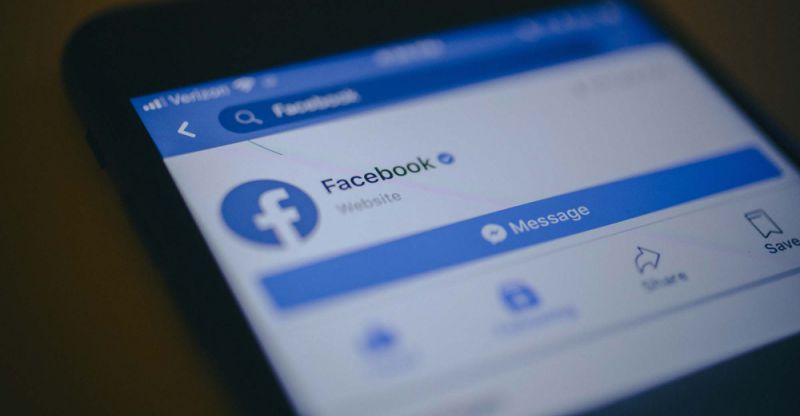
(Bloomberg) — Google and other digital advertising companies are seeing revenue growth wither as marketers slash spending ahead of an expected recession triggered by the coronavirus.The global pandemic and the ensuing slump in economic activity is crushing several industries that have been big buyers of Google and Facebook Inc. ads, including online travel agents, automakers, restaurants and retail.“I’m hearing some big numbers, with ad spending down 30% to 50% across the board,” said Rob Griffin, founder of digital ad consulting firm G5 Futures. Some marketers will slash budgets by 80% or 90%, while others may stop for a while if they’re in sectors that are particularly hard hit, he added.Millions of people are sheltering at home and spending more time on social media, video streaming and other online services. That’s increasing the amount of digital ad space, but demand for those marketing spots is weak, so prices are falling.“The consumption is irrelevant, it’s completely irrelevant,” said Brian Wieser, president of business intelligence for GroupM, the media buying arm of advertising giant WPP Plc. “The total amount of money available is independent of viewership trends.”
Facebook warned on Tuesday that its ad business is weakening in countries that are aggressively fighting the virus. Many of its services are being used more, such as messaging, but they don’t run ads, the company added. The day before, Twitter Inc. said usage has jumped, but global advertising is curbed, forcing the social-media company to slash its sales forecast and project a loss in the current quarter.
“The sudden impact of the COVID-19 virus will ripple through the ad market,” Michael Nathanson, an analyst at Moffettnathanson LLC, wrote in a note to investors. “Given the sheer size of digital ad spending in today’s marketplace (i.e., more than 50% of all ad spend is now digital), we would expect other digital platforms to see significant deceleration in ad revenues in the coming months.”
“We would suggest investors avoid catching falling knives at Google and Facebook,” he added.
Google declined to comment on its ad business on Tuesday. On the company’s YouTube video service, viewing has jumped in the past week, but CPMs, the industry’s way of measuring ad prices, fell as much as 8%, according to one digital media executive who asked not to be identified discussing private figures.
Shares of Google parent Alphabet Inc. and Facebook are down about 25% since the middle of February, so some of the digital ad downturn may already been priced in. Facebook stock dipped about 1% in extended trading after its warning. Alphabet was little changed.
Longer term, Google and Facebook have big cash hoards and little debt, so they can withstand a deep recession, according to Bloomberg Intelligence internet analyst Jitendra Waral.
The last major economic downturn was a boon to these companies. The 2008 financial crisis triggered a similar slump in advertising, but much of that was focused on traditional media. Online platforms took advantage of the moment, and pitched their ads as cheaper, more-targeted alternatives. Now, digital ads take in more than $300 billion a year from the largest corporations to the smallest businesses. Google and Facebook account for more than half of that, according to research firm EMarketer.
Singapore Shuts Bars; India on Nationwide Lockdown: Virus UpdateLast week, as the scale of the crisis hit home, ad agency executives worked the phones, trying to help clients figure out what to do next. Some pulled out completely while others raced to adjust the tone of their ads.
“You have industries that were extremely active as of a week ago come to a screeching halt: restaurants, travel, retail,” said Doug Rozen, chief media officer at advertising agency 360i. Other companies are still spending, but being more conservative, he added.
Google and Facebook derive much of their revenue from small businesses, thousands of which could shut if a deep recession sets in. Both internet companies offer self-service ad platforms that can be switched off quickly.“Advertising is the easiest expense to cut, you can literally log into Google Ads and turn it off and start saving money,” said Ari Paparo, head of digital ad firm Beeswax Inc. and a former Google executive.
Amazon.com Inc. recently cut back drastically on how much money it spends on Google ads. The online retailer is one of Google’s largest ad buyers, usually snapping up product listing ads to lure web shoppers to Amazon.
Expedia Group Inc. and Booking Holdings Inc. each spend hundreds of millions of dollars a year marketing on Google, but these online travel agents have been hammered by the abrupt halt in flights, business trips and vacations.
Booking Withdraws Already-Bleak Forecast, Citing Coronavirus
Booking Holdings has pulled back “materially” on brand advertising, RBC Capital Markets analyst Mark Mahaney wrote in a recent research note after meeting executives from the online travel company. The industry accounts for about 10% to 15% of Google’s ad revenue, with Booking and Expedia accounting for about 3% each, Mahaney estimates.
Even businesses that don’t sell through the internet often purchase Google ads to encourage people to visit their brick-and-mortar locations. Last week, Being Yoga, a yoga studio about 15 miles south of San Francisco, was still buying Google search ads, based on the query “yoga near me,” despite being closed. Bloomberg News contacted the business, which said it had forgotten to switch the ads off.
Retailers often buy Google local inventory ads that show online shoppers whether products are stocked in nearby stores. With many non-essential retailers shutting locations, demand for these ads may slow.
“If stores are closed, we absolutely recommend they turn off local inventory ads,” a Google spokeswoman said.
Real numbers showing the virus’ impact are beginning to emerge from China, which was hit first and shut down travel and non-essential businesses weeks ago.Advertising sales on China’s big digital platforms are projected to drop 20% to 30% in the first quarter of the year, WPP’s Wieser said. Automobile ads slumped 79% in China in February, a far steeper decline than any time during the 2008 financial crisis, he also noted. Most Google services are unavailable in mainland China, but in the rest of the world, automakers are another big ad customer.
Even industries that are seeing higher demand, like consumer goods, are unlikely to advertise more right now. “Why would you advertise toilet paper right now? It’s not helpful,” Wieser said. “They want to curtail demand.”
(Updates with YouTube ad prices in ninth paragraph.)
<p class="canvas-atom canvas-text Mb(1.0em) Mb(0)–sm Mt(0.8em)–sm" type="text" content="For more articles like this, please visit us at bloomberg.com” data-reactid=”44″>For more articles like this, please visit us at bloomberg.com
<p class="canvas-atom canvas-text Mb(1.0em) Mb(0)–sm Mt(0.8em)–sm" type="text" content="Subscribe now to stay ahead with the most trusted business news source.” data-reactid=”45″>Subscribe now to stay ahead with the most trusted business news source.
©2020 Bloomberg L.P.









